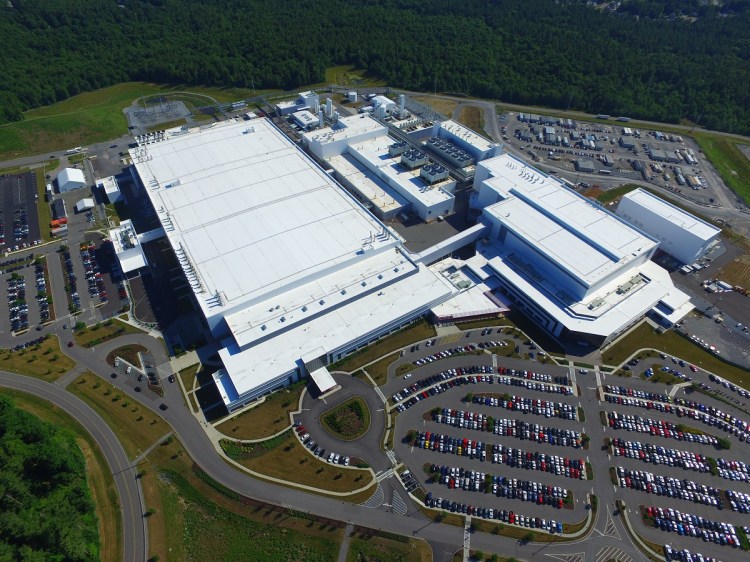Globalfoundries, one of the world’s biggest contract manufacturers of chips, has unveiled a new 12-nanometer manufacturing process that can yield a 10 percent performance gain over the previous generation.
This kind of process will be the backbone of semiconductor factories that cost $10 billion or more, and so it can be viewed as one of the drivers of the technology economy.
The new process can create chips with 12-nm FinFET features, which are faster and more efficient than the previous generations of chips that were built with 14-nm or 16-nm circuit dimensions. That means that customers of Globalfoundries will be able to design chips that are faster than the previous generation, in line with the cadence of Moore’s Law, which predicts that chips will double performance every couple of years or so.
Sanjay Jha, CEO of Milpitas, California-based Globalfoundries, said in an interview with VentureBeat that customers such as Advanced Micro Devices wanted to have an in-between step between generations. Chip makers such as Intel are moving from 14-nm chips to 10-nm chips. By moving to the interim step of 12-nm, customers such as AMD could be more competitive against rivals such as Nvidia, Jha said.
June 5th: The AI Audit in NYC
Join us next week in NYC to engage with top executive leaders, delving into strategies for auditing AI models to ensure fairness, optimal performance, and ethical compliance across diverse organizations. Secure your attendance for this exclusive invite-only event.
While chip makers are moving to 7-nm processes, the 12-nm process is a good one that allows chip makers to get new products out without completely redesigning them from the ground up, Jha said.

Above: Sanjay Jha, CEO of Globalfoundries.
Globalfoundries makes chips such as AMD’s Zen-based processors, which are much faster than the previous generation of processors. By moving to 12-nm designs, AMD and others will be able to offer a faster generation of chips.
“We work very closely with AMD now, and we do things with them that make a big difference for their products,” Jha said.
Jha said the 12-nm process builds on the 14-nm technology that has been in production since early 2016 at Globalfoundries’ Fab 8 factory in New York.
“We are pleased to extend our longstanding relationship with Globalfoundries as a lead customer for their new [12-nm] technology,” said Mark Papermaster, chief technology officer at AMD, in a statement.
Beyond processors and graphics chips, Globalfoundries said the new process will be useful in making automotive technologies such as lidar sensors, 5G radios, mixed-signal chips, and others.


